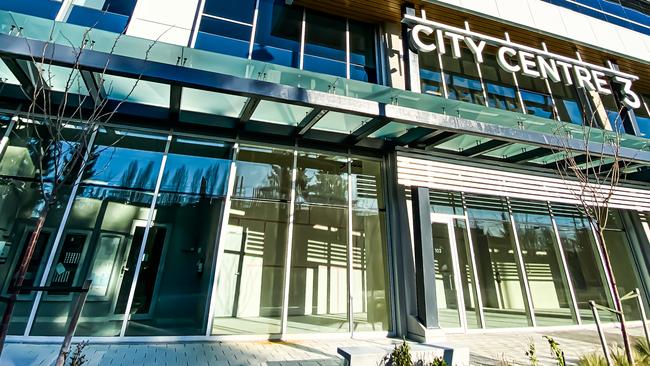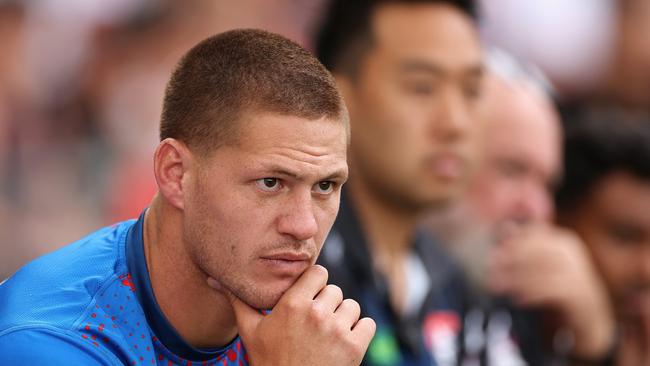NRL 2023: Inside the Canadian clinic and concussion test that will guide Kalyn Ponga’s rehabilitation
On the US-Canada border, in a centre specialising in neurology studies, Kalyn Ponga will undergo a test that is not available in Australia. Find out what it means for his future.
NRL
Don't miss out on the headlines from NRL. Followed categories will be added to My News.
Kalyn Ponga’s immediate playing future could hinge on a six-minute test that is yet to become available in Australia.
Ponga flew to Canada on Friday morning with Knights chief medical officer Dr Jin Lee to undergo testing at HealthTech Connex, a Centre for Neurology Studies about 34 kilometres south of Vancouver on the US-Canada border.
The centre is home to Neurocatch, described on HealthTech Connex’s website as an industry-leading medical device that offers an objective evaluation of cognitive function.
News Corp has learned that Ponga will undergo testing using the Neurocatch device to analyse his brain function and potentially determine when he could be fit to return to the NRL.
The test takes as little as six minutes and produces a report immediately to display information on three different brain responses – auditory and sensory responses, basic attention and cognitive processing.
The device uses sensors that are held in place by a thin mesh cap. A few drops of gel are then placed between the sensors and the skin, which makes it possible to measure brain waves as the brain is stimulated by noises, beeps and words.
The results are then measured against a normal map of the brain to determine whether there is any cognitive impairment.

When contacted by News Corp, a spokesperson from HeathTech Connex declined to comment for confidentiality reasons.
However, HealthTech Connex president doctor Ryan D’Arcy wrote in Forbes this week that “concussions are becoming manageable through advances in evaluation and treatment”.
“The increasing evidence linking concussive impact exposure to a higher risk for devastating neurological outcomes for professional athletes, amateur athletes, coaches and weekend warriors is top of mind,” he wrote.
“The current state of concussion evaluation relies heavily on subjective and error-prone measures such as self-reported symptoms, leading to misdiagnosis and inadequate care.
“Standardised protocols for evaluating concussions are an important start, but without objective evaluations within those protocols, these, too, remain challenged by fundamental limitations related to evaluation.
“As the saying goes in medicine: You can’t treat what you can’t measure. In concussion evaluation and treatment, healthcare specialists critically need objective, sensitive and accessible measurement tools to provide consistent and effective care across different settings.”
Depending on the results, Ponga is expected to stay in Canada for less than two weeks.
Ponga has suffered a series of concussions over the past year, the latest in the second round of the competition when a head clash forced him from the field against the Wests Tigers

He has been sidelined since and the Knights have declined to put a date on his return. The hope is that by sending him overseas, they can gain greater insight into his health and fine-tune his rehabilitation with a view to him eventually returning to the field.
The decision to send him to Canada was made in consultation with one of the NR:’s independent consultants, doctor Chris Levi.
The Neurocatch has been used in other sports – earlier this year the British Columbia Hockey League used the platform to evaluate the cognitive function of the top prospects.
“Not long ago, and still currently for many, the concept of concussion in the headlines evokes thoughts of concern, worry and fear of the unknown potential for tragic consequences,” D’Arcy wrote in Forbes.
“Technology advances are quickly transforming this into thoughts of optimism, actionable prevention and treatment and emerging glimmers of hope that concussion will soon evolve into a manageable health risk.
“Beyond the headlines, the future may look much brighter than we think.”




